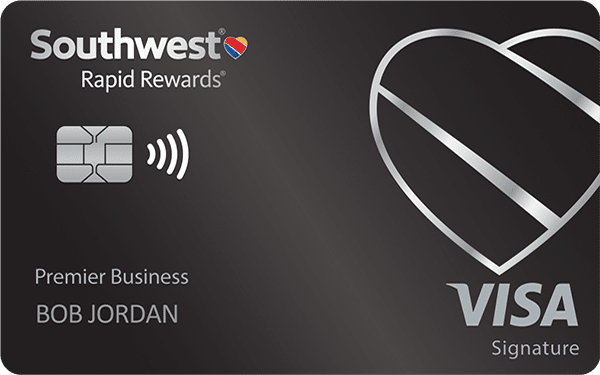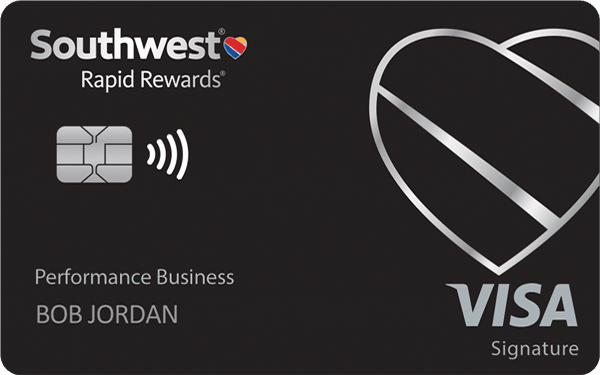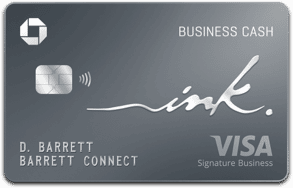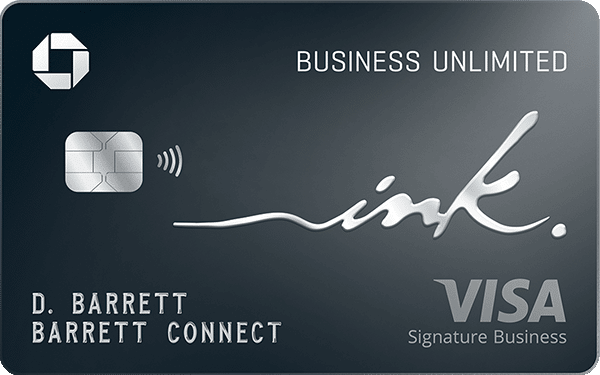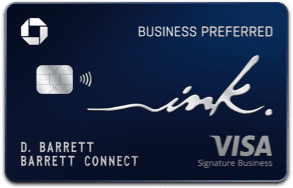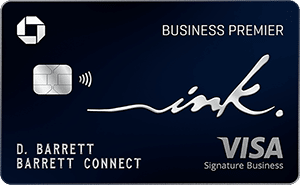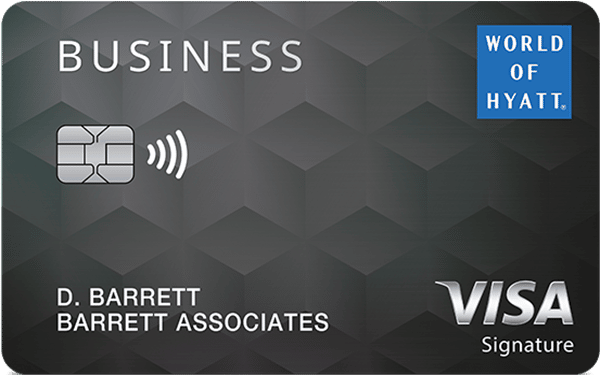How Do Business Credit Cards Work?
Business credit cards work similarly to personal credit cards—you use them to make purchases and then pay down the bill later to avoid interest charges—but business cards tend to have higher credit limits and rewards programs tailored to business owners.
Here are some important things to know about how business credit cards work:
- Credit access: You get access to revolving credit, just like with a personal credit card.
- Perks: Many business credit cards offer perks and rewards specific to business spending, such as office supplies, advertising and travel.
- Credit reporting: Some card issuers report your activity to both commercial and consumer credit bureaus.
- Personal guarantee: Most issuers require the business owner personally guarantees the debt. In other words, if you’re late or miss a payment, you, the business owner, could be liable.
- Credit score: A business credit report is like personal credit history except it’s for your business. Having a high credit score could qualify your business for better loans or insurance premiums.
 Related Article
Related Article
5 Reasons Why Your Business Needs Its Own Bank Account
What Are the Perks of Business Credit Cards?
Business credit cards typically come with a variety of perks and features that can come in handy for business owners:
- Higher credit limits: Many business credit cards provide higher credit limits because issuers know you’ll likely be spending more on big company expenses.
- Rewards designed for business owners: These cards typically tailor their rewards programs to common business expenses. This includes things like offering the ability to earn cash back on office supplies, advertising, travel and dining.
- Free cards for employees: Not all business cards offer this perk, but it’s a pretty common one. If you have multiple staff who need to use a credit card for business spending, the ability to have several for free is really helpful.
- Separation of business and personal expenses: A clear separation of business and personal spending is a big benefit of this type of credit card. If you use your business card for all your company spending, it will be easy to see your expenses and other financial information at tax time.
- Sometimes lower interest than a business loan: This depends on your credit score and other factors, but you may be able to find a business credit card with a lower APR than what you’d find on a business loan. It’s worth checking your credit and shopping around to see which option is a better fit for you.
How to Qualify for a Business Credit Card
You don’t need to be a multimillion dollar entity to qualify for some of the best business credit cards around. Many sole proprietors and small companies use them, too. Here’s what you need to qualify.
- A business: According to the IRS, you don’t always need a registered business entity (like an LLC or corporation) to count as a business. Sole proprietorships and single member LLCs also count. If you sell items on eBay or Etsy, or work as a freelance writer, you may qualify for a business credit card.
- Federal tax ID, EIN or SSN: You don’t necessarily need a federal tax ID (or EIN) to apply for a business credit card. You may be able to use your Social Security number instead if you’re a sole proprietor.
- Proof of business income (optional): You may not get higher credit lines unless you’ve been in business for a while and can prove you have a certain amount of income.
Quick Tip
To check your business credit score, you can sign up for a free service called CreditSignal (offered by Dun & Bradstreet), which provides alerts when your credit report changes.
Pros & Cons of Business Credit Cards
Benefits of Business Credit Cards
- Organize business expenses
- You may get higher limits
- Earn points for business expenses
- Tax benefits
Downsides of Business Credit Cards
- Less protection
- Business owner is on the hook
Pros of a Business Credit Card
- Organize business expenses: You can separate your business and personal expenses and streamline employee expenses. Many business credit cards offer year-end summaries, and you can download statements and purchase records for accounting programs.
- You may get higher limits: Having access to capital can help you grow your business, especially if you qualify for a 0% APR offer. Using a credit card can also help free up cash flow.
- Earn points for business expenses: These cards tend to offer rewards in categories more suited for businesses, such as internet charges, office supplies, advertising and travel. You can also earn points on employee expenses with authorized users.
- Tax benefits: Qualifying business expenses on a business credit card can be tax deductible. This includes any annual fees, interest and any late fees. To find out for certain, it’s best to consult a tax professional.
Cons of a Business Credit Card
- Less protection: Small business credit cards don’t have as many protections as personal credit cards and aren’t as heavily monitored as consumer cards. This means business credit cards don’t fall under the Credit CARD Act of 2009. Your APR can change any time and you lose protection against high transaction fees. However, some major credit card issuers voluntarily adhere to the CARD act to provide business owners more transparency in their policies.
- The business owner is on the hook: The primary cardholder (usually the business owner) is on the hook for the repayment of all charges, including ones from employees.
More on the Benefits 5 Reasons to Get a Business Credit Card
Business owners juggle many responsibilities, and a business credit card can be a major help
-
1
Easy Access to Capital
A business card can make it easier to purchase what you need to grow or maintain your business. If you’re growing your business, having access to capital can allow you to buy inventory, fulfill orders, and spruce up your office or shop, without worrying about cash flow.
-
2
Separation of Business and Personal Assets
A dedicated business credit card can make it easier to separate business and personal finances. Not only will it be easier when it comes time to do your taxes, but in some cases, it can protect your personal finances if legal trouble arises with your business.
-
3
Tax Benefits
Qualifying business expenses charged on a business credit card are tax deductible. This typically includes annual fees, interest and late fees. To find out for certain, it’s best to consult a tax professional.
-
4
Streamline Employee Expenses
Instead of reimbursing employees, give them employee credit cards so you can manage expenses more easily. You can also limit the amount your employees spend, giving you more control.
-
5
Bookkeeping and Accounting Tools
Many business credit cards offer annual spending summaries, and you can download statements and purchase records for accounting programs. This can help you simplify your bookkeeping and track spending more easily.
How to Apply for a Business Credit Card
1. Check Your Credit
Before you apply, check your credit score to help assess which cards you might qualify for. Then you can shop around to see which cards are a good match and offer you the highest chances of approval.
2. Gather Supporting Documents
You won’t need many documents, but you’ll likely be asked for your federal tax ID number, your annual business revenue, specific details about your business and your Social Security number.
3. Be Honest
If you don’t have a business, don’t apply for a card. The same goes for being dishonest about other information to try to get a larger credit limit or other perks. Issuers may ask for supporting documents to prove you have a business, and they’ll likely find out the truth.
4. Know You’ll Need to Sign a Personal Guarantee
The issuer will take your personal credit history into consideration, so be aware that you will likely be personally responsible for any charges incurred if your business can’t pay for them.
5. Weigh the Card’s Benefits Against Its Costs
For example, review the fine print to see what you need to do to earn sign-up bonuses or take advantage of other benefits, like travel credits. Make sure any expenses you’re covering (like an annual fee or the cost of employee cards) are less than the perks or savings you get from having the card.
 Related Article
Related Article
The 5 Most Common Mistakes Small Businesses Make
What Is the Easiest Business Credit Card to Get?
The easiest business credit card to get depends on your credit history, but secured credit cards and business credit cards designed for people with fair credit are easier to get than others.
A few things to keep in mind about qualifying for a business credit card:
- Qualifying for a business credit card depends on your credit history—both personal and commercial.
- If you’ve never applied for a business credit card, you can use your personal credit score.
- The higher your credit score, the better your chances of approval.
Business Credit Cards for Fair Credit Borrowers
You may qualify for a business credit card with fair credit, but you might not get ones that offer benefits such as travel credits and 0% introductory APR offers. If these are important factors to you, you can work on building your credit and consider another card down the line, once you’ve raised your credit score.
Secured Business Credit Cards
For business owners who have bad credit, or no credit at all yet, secured credit cards are often the best bet. These require you to put down a deposit, which serves as your credit line. They don’t typically offer a lot of rewards or other perks, but some do offer free employee cards.
Quick Tip
If you don’t qualify for the card you want, monitor your credit over time and work on paying off debts and building credit. Once your score is higher, you’ll have an easier time qualifying for the business credit card you have your eye on.

6 Best Banks for Small Businesses
What Is the Difference Between a Personal and Business Credit Card?
The main differences between business and personal credit cards are:
- Business expenses: Business credit cards require you to use the card for your business (including sole proprietorships).
- Tailored perks: Rewards on business cards focus on professional needs, like office supplies, advertising and travel while consumer cards prioritize rewards on personal expenses like groceries, gas and streaming services.
- Higher credit limits: Business cards often have higher credit limits because issuers know you might use the card for bigger expenses.
- Separate finances: Business credit cards help you keep your professional and personal expenses separate for better accounting, tracking and tax management.
- Consumer protections: Personal cards must abide by strong consumer protection laws related to fraud, notifications and more—many business cards follow these guidelines but aren’t always required to.
There aren’t many other major differences between personal and business cards. Both types allow authorized users—in the case of business cards, authorized users are considered employee cards. The business owner (the primary cardholder) is responsible for repaying the charges, including ones from employees. If you have a rewards credit card, points earned go to you, even if employees racked them up.
Frequently Asked Questions
-
In many cases, applying for a business credit card will affect your personal credit, because the card issuer will do a hard credit check on your personal credit history. This is because you are often personally responsible for that card and its payments, even though it’s for business purposes.
Some credit card companies also report your business credit card activity to consumer credit bureaus, which means it affects your personal credit report.
-
The main differences between business and personal credit cards are:
-Business credit cards require you to use the card for your business (including sole proprietorships)
-Rewards on business cards tend to focus on professional needs, like office supplies, advertising expenses and travel
-Consumer cards prioritize rewards on personal expenses like groceries, gas and streaming services
-Business cards often have higher credit limits because issuers know you might use the card for bigger expenses
-Business credit cards help you keep your professional and personal expenses separate for better accounting, tracking and tax management
-Personal cards must abide by strong consumer protection laws related to fraud, notifications and more—many business cards follow these guidelines but they aren’t required to in every case -
Yes, you can use your EIN to get a credit card. In fact, if you are using an EIN for business purposes, you may be able to access various types of business credit cards that offer exclusive benefits and rewards.
-
Yes, business credit cards typically have credit limits like regular consumer credit cards. The limit amount will depend on the particular card issuer and the applicant’s creditworthiness.
-
It may be difficult to get a credit card for a new LLC, as the issuer typically looks at the credit worthiness of the company, which includes factors such as its track record of repayment and current level of debt. Additionally, some issuers may also require a personal guarantee from founders, meaning that their personal credit scores could also play a role in the approval process.
-
Yes, however, business credit cards generally require applicants to have some source of revenue in order to qualify. However, there are certain business credit cards available for those who don’t have any revenue yet or are just starting out. These options often require a good personal credit score and may not offer the same benefits as other cards.
-
Yes, you can get two business credit cards, or more. There is no specific limit to the number of business credit cards you can get, but you can have an application denied if the card issuer finds you’ve applied for many cards recently or your score decreases from a lot of hard credit checks.
It’s generally a good idea to only get as many cards as you can reasonably keep track of to ensure you aren’t spending more than you can afford to pay back.
-
No, a business EIN does not have a credit score. A business EIN is only a unique identifier used by the Internal Revenue Service (IRS) and other government agencies to identify taxpayers and track financial data.
